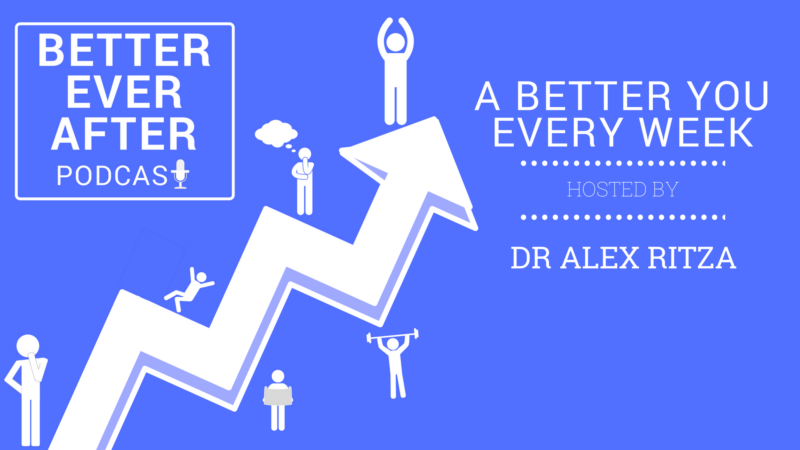Something that I have struggled with for as long as I can remember is the tendency to expect the world of myself.
I know I am not alone in this. I know there are other people reading this right now that do this as well. Especially given the focus of this podcast and the likelihood it is going to attract a more Type-A person, I know I am speaking to others, and maybe that is maybe you.
I am of the opinion that having high expectations of oneself can be really advantageous: I know – at least for me – it pushes me towards a high work ethic and a desire to achieve bigger and better things. If I see someone else achieve something, I set my goal post in that direction. To be frank it is something I am really proud of because it keeps me hungry to continue to do better. It is tough to have a desire to get a little better each week if you are apathetic
My problem and the one I want to propose a solution to this week is what happens when I don’t hit my expectations – AND THAT IS – I can be really too cruel to myself. Negative self-talk is something that I am sure a lot of people do but would never admit it aloud – certainly not some of the awful things we say to ourselves.
I am not so much talking about self-deprecating humour like “oh I’m such an idiot” – I think stuff like that and the ability to not take oneself too seriously and joke around is important.
I think it becomes harmful and counterproductive to the expectation of higher achievement and happiness when the self-deprecating humour moves towards self-loathing and self-sabotaging that chastises your character and who you are as a person.
When I was prepping this episode I was sick, not feeling my best and not in a good frame of mind – it was one of those days when it felt like the brain chemistry was a little off and the needle was pointing towards the depressive end of the scale. I kept finding myself getting stuck in this series of cascading thoughts of self-flagellation in response to the smallest of failures. You drop and break a glass and a few minutes later you find yourself thinking that you are the worst human being in the world and undeserving of all the good things you have achieved.
Obviously, this is an extreme example but we do it. We take mini-micro failures at work, or a failed-expectation in a relationship and turn it into more than what it is on face value.
Now, I do not profess to be a psychologist or a social worker with an understanding of the biochemistry or the psychology of why we do this. My guess is that it is a learned behaviour we are gifted by our parents that is reinforced over a lifetime and reflects a lack of self-esteem in some dimension. My goal is not to cure you of this – I gotta try to fix me first.
What I wanted to share was a realization that I had that has helped me get a little better at this.
The realization is that: sometimes I saw things to myself that I would never in a million years say to another human being. Think about it, would you ever call a loved one a loser or say half of the things we say to ourselves when we fail to hit our own expectations. 9 times out of ten the answer is no. We show others compassion and love. 9 times out of ten we exude kindness and caring.
And so my realization was that during times of failure, with a growth mindset in mind, I need to speak to myself like I am talking to one of my patients.
By stepping outside of myself and looking at the situation as a bystander would, I have found that I am able to have much better perspective on the situation, unencumbered by emotional baggage, and take better stock of my predicament.
I have found that by speaking to myself like I would as a loved one, I am able to show greater self-compassion and don’t tend to go into a self-inflicted hurt locker. Setbacks and failures seem less severe.
Rather than a vitriolic self-insult that sounds ridiculous when said aloud, say what you would to a loved one to yourself and I think it is a far better representation of the facts or at the very least a better mindset
It is okay. No big deal. Get’em next time. It’s not that bad. These are the things we want to hear from our partners or coworkers when expectations are not hit – we just need to redirect them a little better towards ourselves.
This is something that I struggled with immensely during university. Any minor mistake or failure lead to the cascading thought that I would be a failure. I once got a 22% on a calculus midterm and my mindset at the time led to the thought that that would be the end of all my hopes and dreams. It reads as being ridiculous, but that is what self-talk looks like when we write it down or say it aloud. It is irrational.
If I had had the ability to talk to myself like present-day Alex would, I would have said jokingly – “dude you are being an idiot! It is going to work out fine like it always does.”
I would have saved myself so much stress, anxiety and lack of joy. If you have a high work ethic and expectations of yourself, the odds are that things are usually going to work out for you in the end. I find that I continually need to remind myself of this, to get off of the negative-self-talk-merry-go-round and find more joy in the failures and the journey.
My cue for getting off of this merry-go-round is a big old stop sign. When I notice the negative self-talk kicking in I picture a big STOP SIGN that cues me to stop, step back, be compassionate like I would to a loved one and interpret the given situation that way.
This is something I have gotten immensely better at over the last couple of years. I can’t point to a particular book or Ted Talk that really helped. I don’t have a particularly low point or a moment when I said to myself that enough is enough. I do know that I have had a general sense of it over the last half decade and I have been working hard and it and have seen some gradual and slow improvements. With practice it works 95% of the time but is obviously more challenging under less sleep, higher stress or on those days when the brain chemistry feels a bit off.
My hope is that you look forward to your next failure when you will show yourself a little more compassion and talk to yourself like you would talk to a loved one: “don’t worry, no big deal, it will all work out okay”.




